Werbung

|
© Fotos by OnlineReports.ch / BMF
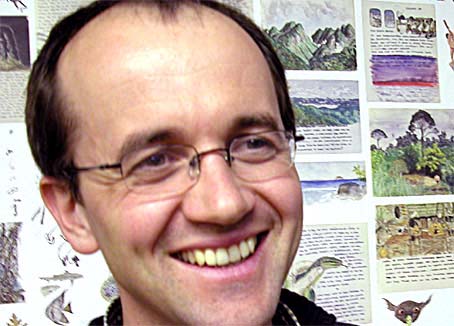 "Power through Non-Violence": Rainforest Conservationist Lukas Straumann
"Switzerland has a Greater Influence than One Thinks"Lukas Straumann, director of the Bruno Manser Fonds, talking about his first trip to the endangered Penan in Sarawak/Malaysia Von Peter Knechtli For more than half a year Lukas Straumann has been the director of the Bruno Manser Fonds in Basel. He recently returned from a trip to the Malaysian state of Sarawak where his organisation supports the rights of the Penan people who are threatened by the large scale logging of their rainforest. OnlineReports: You have recently returned from your first trip to the rainforest people, the Penan, in Malaysia’s state of Sarawak. What was your most profound impression?
"Loggers Penetrate Last Penan Areas." OnlineReports: How alarming is the situation of the Penan?
"Swiss Investors Should Ensure Compliance OnlineReports: Who could expose Sarawak to international pressure?
"Bruno Manser Fonds Benefits from Implicit Trust." OnlineReports: Is BMF fighting a lone battle for the Penan or are there other organisations supporting these people? 25. November 2004
THE INTERVIEWEE
Lukas Straumann (35) has been the director of the Bruno Manser Fonds in Basel since June 2004. He was a collaborator of the Bergier-Commission for which he researched the economic relations between pharmaceutical companies in Basel and Nazi Germany. His doctoral dissertation in history ("Beneficial Pests – Applied Entomology, Chemical Industry and Agricultural Politics in Switzerland 1874-1952") will be published in April 2005. He is the father of two children and lives in Berne. |
Was Sie auch noch interessieren könnte
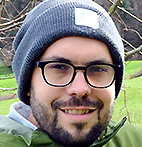 |
20 Jahre "Obstgarten Farnsberg" |
|||
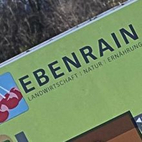 |
neuen Ebenrain-Chef |
|||
 |
bei regionalen Strompreisen |
|||
 |
voller Tatendrang |
|||
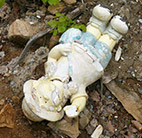 |
mit einer Million Franken |
|||
 |
Reaktionen |

Duell um den Ständerat:
Sven Inäbnit gegen Maya Graf
Sven Inäbnit gegen Maya Graf
Sie will die Pro-Kopf-Prämien abschaffen,
er auf keinen Fall. Das grosse Streitgespräch.
 |
Reaktionen |

Baselbieter GLP attackiert
rot-grüne Vertretung in Bern
rot-grüne Vertretung in Bern
Nach erfolgreichen Landratswahlen wollen die Grünliberalen auch einen Nationalratssitz.

Tiefgefrorene Tiere.
Und schmachtende Menschen
Und schmachtende Menschen
Das Museum.BL hat Probleme mit
Schädlingen und dem Sommer-Klima.
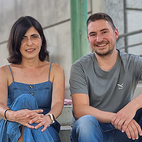
Paone und Amsler greifen
für Sie in die Tasten
für Sie in die Tasten
OnlineReports bleibt, was es ist.
Nur mehr davon.

25 Jahre OnlineReports:
Peter Knechtli sagt Adieu
Peter Knechtli sagt Adieu
pkn., der Gründer des Pionier-Newsportals,
übergibt jetzt die Verantwortung.
 |
Reaktionen |
www.onlinereports.ch - Das unabhängige News-Portal der Nordwestschweiz
© Das Copyright sämtlicher auf dem Portal www.onlinereports.ch enthaltenen multimedialer Inhalte (Text, Bild, Audio, Video) liegt bei der OnlineReports GmbH sowie bei den Autorinnen und Autoren. Alle Rechte vorbehalten. Nachdruck und Veröffentlichungen jeder Art nur gegen Honorar und mit schriftlichem Einverständnis der Redaktion von OnlineReports.ch.
Die Redaktion bedingt hiermit jegliche Verantwortung und Haftung für Werbe-Banner oder andere Beiträge von Dritten oder einzelnen Autoren ab, die eigene Beiträge, wenn auch mit Zustimmung der Redaktion, auf der Plattform von OnlineReports publizieren. OnlineReports bemüht sich nach bestem Wissen und Gewissen darum, Urheber- und andere Rechte von Dritten durch ihre Publikationen nicht zu verletzen. Wer dennoch eine Verletzung derartiger Rechte auf OnlineReports feststellt, wird gebeten, die Redaktion umgehend zu informieren, damit die beanstandeten Inhalte unverzüglich entfernt werden können.
Auf dieser Website gibt es Links zu Websites Dritter. Sobald Sie diese anklicken, verlassen Sie unseren Einflussbereich. Für fremde Websites, zu welchen von dieser Website aus ein Link besteht, übernimmt OnlineReports keine inhaltliche oder rechtliche Verantwortung. Dasselbe gilt für Websites Dritter, die auf OnlineReports verlinken.






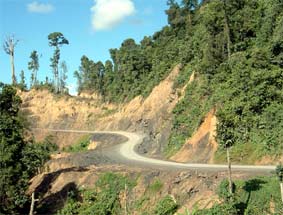 seriously, studied it and risked his life in defending their cause. His disappearance is still very painful for the Penan.
seriously, studied it and risked his life in defending their cause. His disappearance is still very painful for the Penan.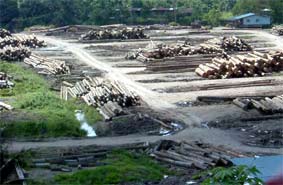 OnlineReports: In 1999, Bruno Manser said to OnlineReports that the success rate of his fight to preserve the forest was ““below zero”. Do you share this view?
OnlineReports: In 1999, Bruno Manser said to OnlineReports that the success rate of his fight to preserve the forest was ““below zero”. Do you share this view?










